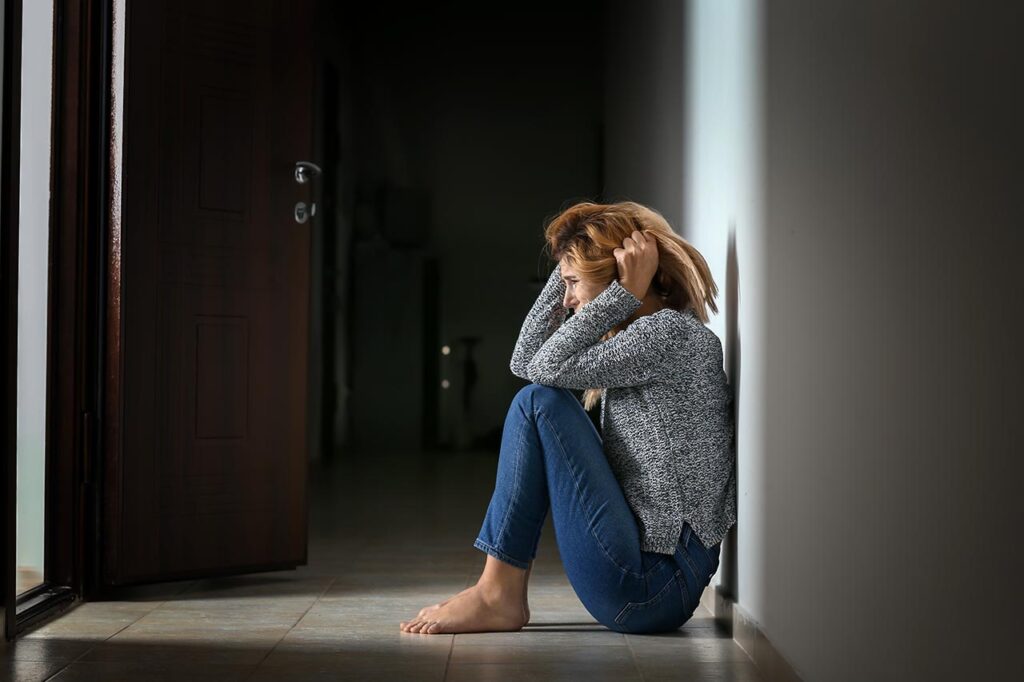Anxiety Disorder Treatment
Anxiety disorders affect about 10% of the American population. There are several forms of the disorder; however, some of the common symptoms include:
- Overwhelming feelings of panic and fear
- Obsessive thinking
- Painful, intrusive memories
- A sense of dread - like “When is the other shoe going to drop?”
- Recurring nightmares
- Physical symptoms such as feeling sick to your stomach, “butterflies” in your stomach, heart pounding, startling easily, and muscle tension
People who suffer from anxiety experience abnormal feelings of nervousness and fear. Because of the deepness of fear involved, they avoid situations that make them feel worse. Alcohol and drug abuse are common methods of self-medication to gain relief from their symptoms. Relationships, job performance and social and professional endeavors all suffer as a result of untreated anxiety disorder(s).

Types of Anxiety Disorders
Panic Disorder
A person suffering from a panic disorder (panic attack) experiences many symptoms that include:
- Pounding heart or chest pain (may feel like a heart attack)
- Sweating, trembling and/or shaking
- Shortness of breath and/or a choking sensation
- Nausea or intestinal cramping
- Dizziness and/or lightheadedness
- Disorientation and/or a feeling of being “disconnected”
- A sense of losing control, “going crazy,” or dying
- Numbness in the arms and hands and/or legs and feet
- Chills or hot flashes
Phobias
Some people experience an unrealistic fear of a situation or activity. These individuals may be suffering from a phobia and take extreme precautions to avoid situations or activities in an effort to not feel symptoms of anxiety. The three basic phobias are:
- Specific phobia — An extreme or excessive fear of an object or situation that is generally not harmful. The fear of driving on the freeway is an example.
- Social phobia – Often referred to as social anxiety disorder, the individual may feel embarrassed or have an extreme feeling of being “less-than” in certain situations, like attending a party or school or work. Public speaking is one example. Meeting new people is another.
- Agoraphobia – People who are in a situation where they cannot escape, perhaps in an airplane or in the middle of a large crowd, may suffer from agoraphobia. Some people may refuse to fly, attend a concert or even go out of the house, in more extreme cases.

Generalized Anxiety Disorder
This disorder may manifest as persistent worrying over job performance, house or vehicle maintenance, keeping appointments, bank balances and more. Sleep disturbances, somatic complaints such as muscle aches and pains and headaches, irritability and poor concentration are common symptoms of GAD.
What Causes Anxiety Disorders?
For the most part, the actual causes are not known; however, through research, scientists have been able to detect clues. An abnormal fear response in the brain is one area that is observed. Genetics seems to play a role, as does how one copes with environmental stressors.
Substance abuse is highly suspect as brain chemistry is often changed, especially with crystal meth and synthetic drugs like bath salts.
Anxiety Disorder Treatment
Medications for anxiety disorders are a temporary fix and should be used only when there are no other solutions. Most medications prescribed are benzodiazepines, which are highly addictive and only treat the symptoms rather than the causes.
Psychotherapy is one of the best treatments as it helps the person resolve emotional issues that may be present.
Exercise is a great treatment. It’s free (unless one pays for a gym membership) and can be done almost anywhere.
Diaphragmatic breathing is the body’s natural way of resetting the nervous system. Within a matter of seconds one’s anxiety symptoms can stop through slow breathing techniques.
Meditation helps in a physiological and psychological way to stop symptoms of anxiety. One gains an overall sense of wellbeing through a consistent daily practice of even the simplest meditation techniques.
Arrowhead Lodge has helped many men with anxiety disorders by:
- Providing a correct diagnosis through psychiatric and psychological assessments.
- Prescribing non-addictive medications
- Providing individual and group counseling
- Equine therapy
- Art therapy
- Nutrition and fitness
- Outdoor activities
If you suffer from an anxiety disorder in conjunction with an addiction, call Arrowhead Lodge about our substance abuse and anxiety disorder treatment program now at 866-540-4742.






